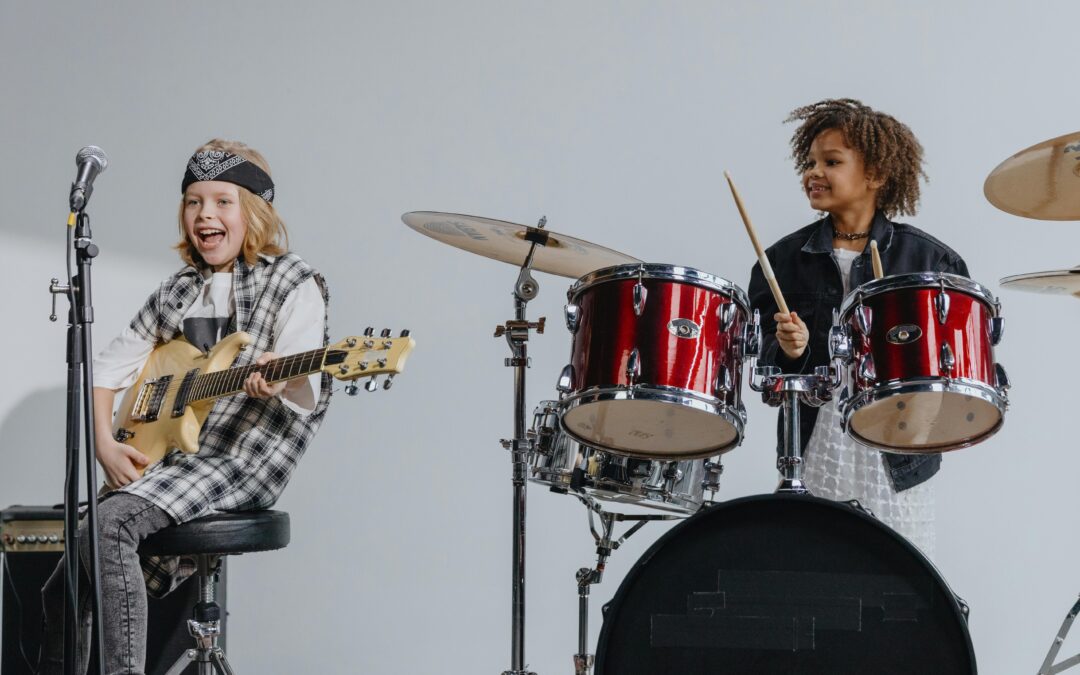Childhood is full of big emotions: excitement, frustration, joy, sadness, and everything in between. For children, though, finding healthy ways to understand and express these feelings can be challenging. That’s where music education plays a powerful role.
Music is more than just scales and songs—it’s a universal language that helps children process, communicate, and channel their emotions in a safe and creative way.
Music Is a Safe Outlet for Feelings
Children often lack the vocabulary to fully describe what they’re feeling. Music provides a nonverbal outlet that allows them to express emotions without words. A child who is shy may find confidence in singing. Another who struggles with anger may channel that energy into drumming. Playing an instrument offers a constructive release, helping children express themselves in ways that feel natural and safe.
This ability to use music as a creative outlet can reduce stress, promote self-regulation, and encourage healthier emotional expression in daily life.
Building Emotional Awareness and Empathy
Learning music also strengthens children’s ability to recognize and understand emotions. For example, when a child plays or listens to a sad melody, they begin to associate sound with feeling. Over time, they develop greater sensitivity to emotions in themselves and others.
This emotional awareness fosters empathy. In group settings such as ensembles or bands, students learn to listen to one another, pick up on cues, and adapt to the emotions being expressed through the music. These lessons extend far beyond the classroom, equipping children with skills that enhance friendships, teamwork, and communication.
Boosting Confidence Through Expression
Expressing emotions in front of others can feel vulnerable, especially for children. Music education provides a supportive environment where students can take those risks in healthy ways. Performing a piece, improvising a rhythm, or singing a solo teaches children to share their feelings with courage.
Each success, no matter how small, builds confidence. Over time, children learn that their emotions are valuable and worth expressing. This confidence can translate into other areas of life, such as speaking up in class, joining new activities, or forming new friendships.
Encouraging Lifelong Coping Tools
One of the most lasting benefits of music education is that it equips children with lifelong tools for emotional well-being. Playing an instrument or singing can become a personal form of stress relief that they can carry into adulthood. Instead of bottling up feelings, children who study music often learn to process emotions through practice, performance, or even simple listening exercises.
This ability to use music for emotional balance can be especially important during challenging stages of growth, from adolescence through young adulthood. Music education is far more than a creative hobby; it’s a vital way for children to explore, understand, and express their emotions.
Ready to give your child the gift of self-expression through music? Contact The Music Workshop today to learn more about our personalized lesson plans.

